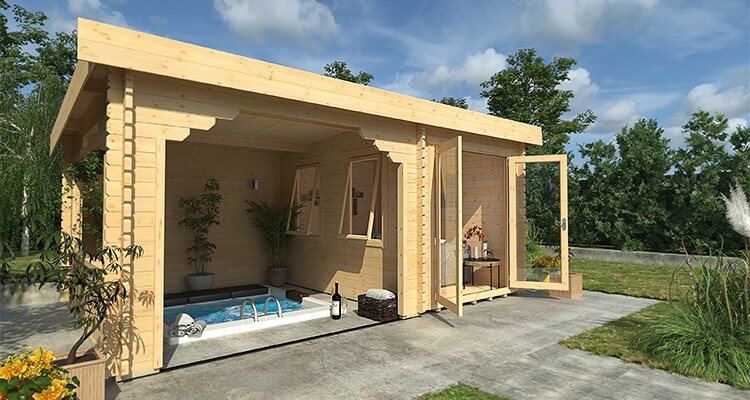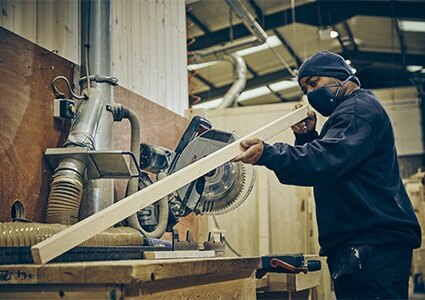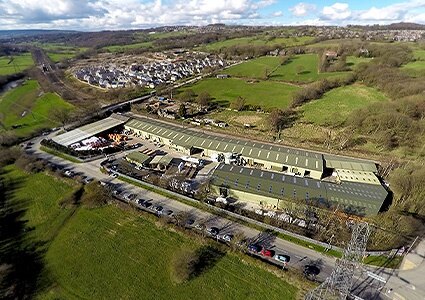
Woodlands Home & Garden Group’s evolution from bespoke timber to garden buildings
Over the past century, the Horsforth-based Woodlands Home & Garden Group Limited (Woodlands) has grown dramatically. Originally founded as a specialist manufacturer of bespoke timber furniture, the company has since expanded across a wide range of markets. Today, Woodlands employs over 175 permanent staff across three large sites in Leeds, UK and operates through five divisions: Woodlands DIY Superstore, Woodlands Garden Spaces, Woodlands Timber, Tiger Sheds (Tiger) and My Modular. Woodlands DIY Superstore is the group’s Leeds-based DIY store, while Woodlands Garden Spaces encompasses garden building manufacturing and trade sales, and Woodlands Timber specializes in timber machining and trade timber sales. Tiger offers B2C garden buildings through an e-commerce website and a growing network of showrooms, whilst My Modular, the company’s latest addition, creates design led modular garden rooms, offices and custom annex buildings. Chief Executive, Ross Moran, provides an overview of Woodlands’ century-old history.
 “Having recently celebrated its 110th anniversary, Woodlands was founded in 1913 as a bespoke timber furniture manufacturer. Although the company is now in its third generation of family ownership, it wasn’t until the 1970s that my grandfather Eric joined the board of directors. Eric quickly became the majority shareholder, before taking full ownership of the business. This pivotal moment in our history transformed Woodlands into the family-run business it is today, and subsequently, my father, David, and uncle, Chris, joined the company in the late 1970s and early 1980s, respectively. At that time, Woodlands primarily focused on importing and machining timber while simultaneously operating a DIY store in Horsforth. After opening the Horsforth site, the business began the move into manufacturing to enhance our product range. We initially considered manufacturing timber fencing that could be sold in-store, which seemed like a logical choice given our timber machining facilities. However, after having invested in equipment to pursue that endeavor, we quickly realized fencing manufacturing had become extremely competitive in the 1980s due to the rise of large national DIY store chains such as B&Q and Homebase. At the same time, Woodlands had started buying and selling a small range of garden and storage sheds, which had proved to be a very successful and profitable sales channel. Consequently, the company’s focus quickly shifted away from fencing to garden shed manufacturing.
“Having recently celebrated its 110th anniversary, Woodlands was founded in 1913 as a bespoke timber furniture manufacturer. Although the company is now in its third generation of family ownership, it wasn’t until the 1970s that my grandfather Eric joined the board of directors. Eric quickly became the majority shareholder, before taking full ownership of the business. This pivotal moment in our history transformed Woodlands into the family-run business it is today, and subsequently, my father, David, and uncle, Chris, joined the company in the late 1970s and early 1980s, respectively. At that time, Woodlands primarily focused on importing and machining timber while simultaneously operating a DIY store in Horsforth. After opening the Horsforth site, the business began the move into manufacturing to enhance our product range. We initially considered manufacturing timber fencing that could be sold in-store, which seemed like a logical choice given our timber machining facilities. However, after having invested in equipment to pursue that endeavor, we quickly realized fencing manufacturing had become extremely competitive in the 1980s due to the rise of large national DIY store chains such as B&Q and Homebase. At the same time, Woodlands had started buying and selling a small range of garden and storage sheds, which had proved to be a very successful and profitable sales channel. Consequently, the company’s focus quickly shifted away from fencing to garden shed manufacturing.
“Initially offering a limited selection of storage buildings, Woodlands witnessed tremendous growth in the shed manufacturing sector through the 1980s and 1990s. As a result, the company began supplying in bulk to garden centers and resellers nationwide. By the time I joined the business in 2003, our garden building division had expanded substantially. We were delivering our products everywhere across the country and had just invested in a new facility to accommodate the increased manufacturing capacity needed to meet growing demand. In 2007, Woodlands began manufacturing log cabins for a market segment similar to the garden shed market, but slightly higher-end and more luxurious. The log cabin market offers higher average order value and a more bespoke product range, whilst also complementing our existing garden shed business. The following year, we launched our own retail brand, Tiger, which gave us two distinct brands; we retained Woodlands for trade products and Tiger as a separate catalogue of retail garden buildings sold directly to consumers. Both sides of the business became extremely successful, with the initial group turnover of £9 million in 2008 growing steadily to £25 million in recent years. Tiger is an important growth channel for Woodlands, and we expect it to represent about 55-to-60 percent of our group turnover this year. Consequently, Tiger has effectively become the primary focus of our group,” Ross explains.
Boosting brand awareness
He sheds light on Woodlands’ ongoing efforts to propel Tiger to the forefront of the market and its aspirations for the brand. “When Tiger first entered the market, there were already a few competitors making strides in the online garden buildings sector. This highlighted the potential that existed in that market – we just didn’t realize how much, as Tiger’s rapid growth truly surprised us. Lately, our strategy has been to propel Tiger’s success even further because we see an opportunity to establish it as the leading brand within the garden buildings space. This market often treats garden buildings as commodity products, but we believe there is room for a strong brand like Tiger to thrive in that market. This is the reason we have invested in above-the-line marketing, which includes TV advertising, high-quality brochures as well as an active presence at trade and retail shows to increase brand awareness. Furthermore, we ensure our Tiger products look different to every other product to stand out from the crowd. We have already witnessed significant progress in terms of brand awareness since we began investing in strategically selected marketing projects. A few years back, most people couldn’t name a single garden building brand, whereas now, we have observed significant uplift in Tiger’s brand recognition. Nonetheless, there is still huge potential to increase that awareness,” says Ross. 
As Woodlands prepares to integrate Tiger’s latest modular proposition, Ross discusses the acquisition that facilitated the inclusion of this new product range into Tiger’s online offerings. “The modular garden room market – along with the garden office and annex markets – grew exponentially during the pandemic because people working from home desired a better space from which to work. Whilst many of them favored high-end sheds and log cabins, others sought more permanent solutions that felt like an extension of their homes, complete with electricity and professional installation. As a result, there was a surge in the demand for modular garden rooms, which began affecting the higher-end segment of the garden building market in 2022, and specifically impacting sales of log cabins. By the end of 2022, when the modular room market began to stabilize, numerous new companies had entered that market. Recognizing the opportunities the modular garden room market offered, Woodlands concluded that the most effective route to entry would be by collaborating with established companies within the sector, instead of starting from scratch with another manufacturing site for modular rooms. We began looking at different manufacturers and eventually came across My Modular, which happened to be based only 20 minutes away from us and offered a fantastic product range with an equally impressive online reputation. After meeting with the founder and owner, Stuart Davison, we discovered common ground in terms of passion, ambition and company culture. This realization prompted us to consider a merger rather than a simple acquisition, leading to the integration of the My Modular team into our business. Stuart also assumed a position on our main group board. The merger not only incorporated My Modular’s products into the Tiger catalogue, but also fostered collaborative growth. Woodlands will share its technical experience with My Modular, helping our new partner improve its already impressive product range. Additionally, it is hoped that the merger will result in mutual savings across the supply chain,” he ends.
Woodlands’ strong foundations and new modular offerings are set to strengthen Tiger’s position as the leading brand for garden buildings in the UK.